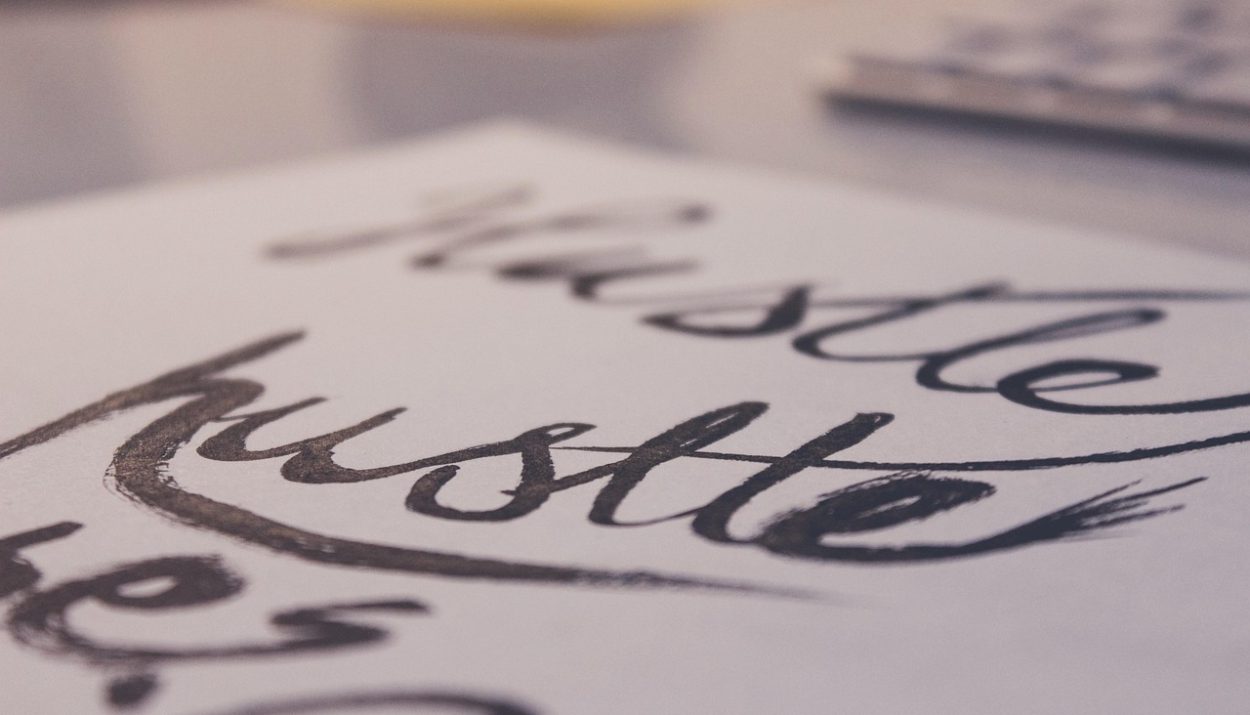Balance hustle culture and self-care as two important aspects of young professionals. Hustle is all about the constant drive to achieve career or personal objectives. On the other hand, self-care focuses on strengthening your physical and mental health. It emphasizes rest and resetting so that you do not burn out. However, an imbalance between hard work and stress management can lead to severe effects in personal and professional life. Excessive hustle without adequate self-care results in burnout and stress.
Conversely, self-care without the necessary hustle leads to career stagnation. The real secret is time management in a manner that accommodates ambition and rest as complements to each other. Whether as a student, teacher, manager, entrepreneur, cadet, or politician, effective management of your calendar positively impacts productivity and health.
What Is Hustle Culture and Why Is It So Popular?
The 20th century saw the rise of an entrepreneurial culture. As a result, the term “hustle culture” started being used widely among professionals. It referred to an idea that signalled a persistent drive to achieve something. With the boom of the internet and social media, the hustle culture enjoyed widespread popularity across social media platforms.
The idea of hustle culture is to fuel ambition and drive among individuals. It encourages setting big goals and working hard for them. Many renowned personalities credit their success to periods of intense hustle. However, there are noticeable downsides to hustle. Hustlers often trade self-worth for productivity.
Constant grinding also leads to chronic stress and burnout. While the milestones may be achieved through discipline and hard work, your relationship and health suffer immensely through the process. Therefore, it is important to analyze both the pros and cons of the hustle culture. The focus should shift to finding the balance between hard work and self-care.
Why Is Self-Care More Than Just Pampering?
Simply, self-care is the practice of focusing on the betterment of your physical and mental health. The struggles of daily life exhaust the human body and mind. The hectic schedule of individuals asks for time for self-reflection, relaxation, and healing. The core idea of self-care is to disconnect from the outside world and focus on yourself.
Such practice tends to bring several benefits to your physical and mental health. It keeps you fresh and relaxed throughout. Further, your concentration on your professional and personal life does not deviate, thanks to a healthy mind and soul. Professionals who regularly engage in self-care practice report increased productivity and sound health. Neglecting it results in burnout and reduced productivity.
How Can Time Management Help You Balance Hustle Culture ?
Time management paves the way for balancing self-care and hustle for you. Balanced time management makes you fulfill your professional as well as personal commitments and keeps you in a good state as well.
But all this is not easy. Busy professionals rarely set aside some time for self-care in their calendar. In the same way, such practice usually finds space in the least-priority agendas. Regardless, it is unwise to ignore the time for your physical and mental well-being. An effective time management plan helps you achieve more productivity in your professional and personal life than ever before
What Practical Strategies Can You Use to Balance Hustle Culture and Self-Care?
Balancing work and self-care is never an easy task. It requires regular commitment and discipline. It can be daunting and, at times, exhausting to follow the routine. However, the long-term benefits of such commitment are worth the effort. Several user-tested techniques and practical strategies can keep you going.
One of the most well-known methods is the Eisenhower Box method. Using this tool, you can divide your daily tasks into four different groups based on their urgency. Likewise, the ABC method of time management advices to categorize the tasks into A, B, and C groups and complete all the tasks of A before moving to B and so on.
In addition to tools and methods, you should stay motivated and committed to the cause throughout. No matter how big the occasion is, learn to say ‘No’ to the event if it compromises your routine.
Which Tools and Techniques Improve Time Management for Busy People?
You can take the help of tools and techniques to improve the time management schedule. The Eisenhower Box Method and the ABC method are the two most common techniques. Further, the POMODORO technique is based on taking a short break every 25 minutes of work. Likewise, you can leverage the technology to stay productive throughout. Calendar apps and to-do list tools can help in efficient time management if used to the fullest.
How Can You Create a Daily or Weekly Routine That Works?
Creating a daily routine is the foremost step in efficient time management. It keeps your day structured and minimizes wasted time. Further, you get the important tasks done that keep your professional and personal life healthy. Since most professionals have a day job, it is advisable to set aside time for meditation and physical exercises in the morning. Likewise, make a list of everything you need to do before you go to sleep.
Daily Routine Essentials
- Morning Power-Up: Start your day with meditation, stretching, or a workout to energize your body and mind.
- Work Sprints: Use time-blocking to focus on deep work, then take short breaks to recharge.
- Midday Reset: Take time for a mindful lunch or a quick walk outdoors.
- Evening Wind-Down: Reflect on the day, plan tomorrow, and disconnect from screens before bed.
Weekly Routine Essentials
- Plan Your Week: On Sundays, map out tasks, self-care activities, and deadlines.
- Batching Tasks: Group similar work (emails, errands, meetings) to save time.
- Weekly Reflection: Review what worked, what drained you, and refine your plan for better balance.
How Do You Overcome Common Obstacles to Balance Hustle Culture?
Time management is not a sprint but a marathon. The results show only after consistent effort and time. You will face several challenges throughout the process. Procrastination is one of the common obstacles that hinders your daily schedule. Likewise, demotivation and emergency tasks also hamper the to-do lists. The key to battling through these challenges is to stay focused and disciplined. You need to trust the process and build resilience for consistent balance.
Common Obstacles to Balance
- Procrastination: Small delays pile up and derail schedules.
- Demotivation: Energy dips make it harder to stick to routines.
- Unexpected Emergencies: Sudden issues disrupt your carefully planned agenda.
Strategies to Overcome Challenges
- The 2-Minute Rule: If something takes less than two minutes, do it immediately.
- Accountability: Share goals with a friend or use apps to track progress.
- Buffer Time: Always leave space in your schedule to handle unplanned events.
Who Has Successfully Balance Hustle Culture and Self-Care?
There are some popular stars who have consistently emphasized the importance of balancing the hustle and care. The most notable among them is American tennis icon Serena Williams. Williams has consistently talked about the importance of sleep and resting, as well as the practice of hours per day.
How Can You Maintain Balance Hustle Culture Without Burning Out?
Time management is an excellent step toward increased productivity and accomplishing goals within a reasonable timeframe. However, the discipline of maintaining a long-term routine can feel overwhelming. The key is starting small and building consistency.
Practical Tips to Hustle Without Burnout
- Start Small: Incorporate one new habit at a time (e.g., 15 minutes of exercise or journaling).
- Cycle Intensity: Alternate between high-effort periods and lighter, recovery-focused weeks.
- Protect Non-Negotiables: Sleep, nutrition, and downtime must always remain in your schedule.
- Stay Flexible: Allow room for adjustments when life throws curveballs.
The small and consistent effort you put in today compounds into an improved, healthier, and more productive tomorrow.
Wrapping up
Balancing hustle and self-care isn’t about choosing one over the other; it’s about weaving both into your lifestyle through smart time management. By setting boundaries, creating routines, and embracing tools that support balance, you can work hard without compromising your well-being.
Ready to level up your life beyond the grind? At The Finance Gig, we share practical strategies on time management, financial freedom, and personal growth so you can hustle smarter, not harder.
Frequently Asked Questions (FAQs)
1. How do I know if I’m hustling too much?
If you constantly feel exhausted, irritable, or struggle to stay motivated despite working long hours, you may be over-hustling and neglecting self-care.
2. Can self-care make me less productive?
No. Self-care enhances productivity by keeping your energy, focus, and mental clarity intact, making you more effective in less time.
3. How many hours of hustle are healthy per day?
It varies per person, but ideally, it balances intense work with adequate breaks and 7–8 hours of sleep. A sustainable hustle prioritizes quality over quantity.
4. What’s the best time of day to practice self-care?
Morning routines set the tone for the day, while evening rituals help you unwind. The best time is whenever you can consistently commit to it.
5. Do successful people really practice self-care?
Yes. From Serena Williams to Arianna Huffington, many high achievers credit self-care as essential for their long-term success.






